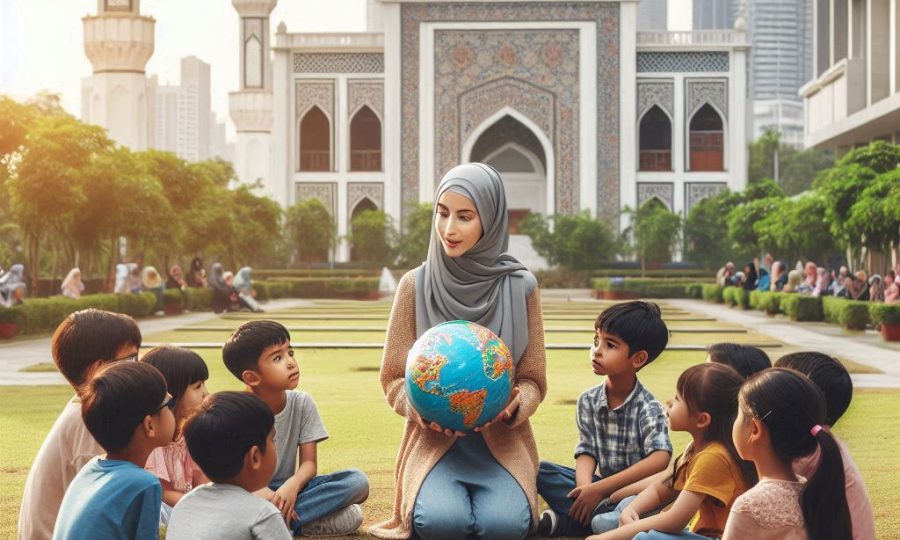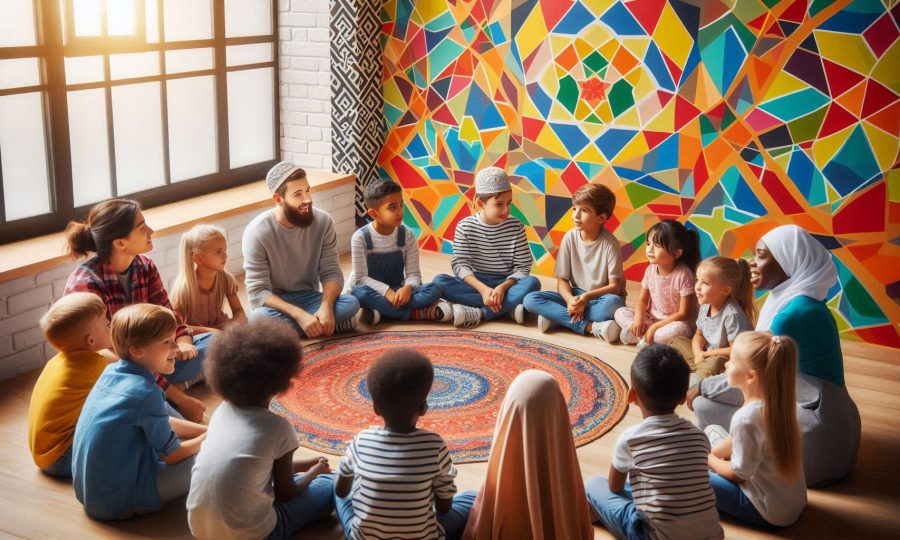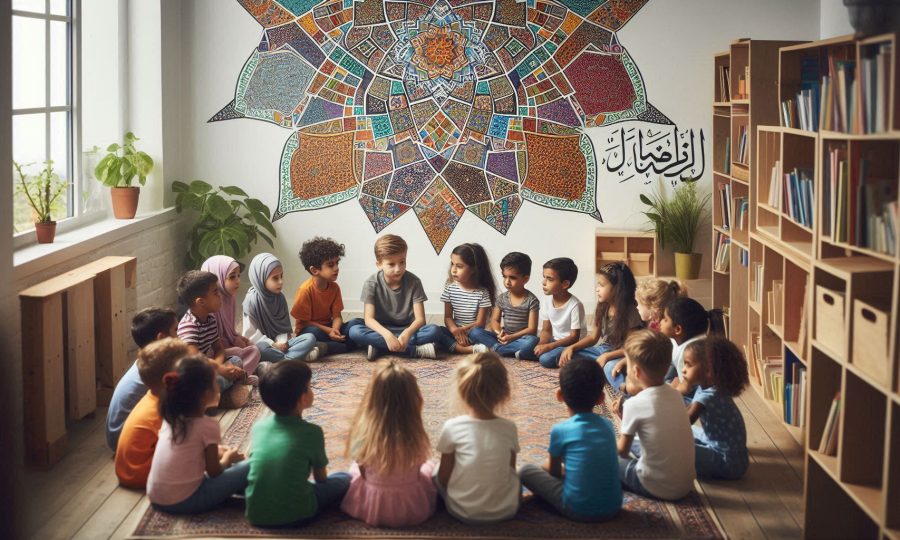Our Aim
Rafah-e-Aama (Public Welfare)
Service to humanity is the foundation of the Islamic philosophy of Huqooq-ul-Ibad (rights of people) and the respect for humanity. This highlights its great significance in Islam. The Shari’ah emphasizes serving God’s creation by assisting them, alleviating their hardships, sharing their sorrows, and showing empathy and kindness.
Whether it is natural disasters, helping the needy, or creating employment opportunities, AlKahaf Educational Foundation has always been at the forefront of serving distressed humanity and contributing to their welfare.
Mission Statement
Serving Humanity with Purpose
In a mission to uplift the human race, AlKahaf Educational Foundation is committed to public welfare, which lies at the heart of Islamic philosophy. The Shari’ah emphasizes aiding God’s creations, alleviating their sufferings, and sharing in their joys and hardships. The Prophet Muhammad (peace be upon him) said, “The best of people is the one who benefits others.” Alhamdulillah, AlKahaf Trust stands at the forefront of serving humanity in need.
Welfare mission
Welfare Projects
to Achieve the Mission

Initiatives to supply clean and drinkable water to underserved communities.

Providing high-quality bread at an affordable price to the public.

Facilitating the distribution of Sadaqah (charity) and Aqiqah offerings to the deserving.

Arranging Iftar meals for fasting individuals throughout the holy month of Ramadan.

Providing facilities for collective and dedicated sacrificial offerings across different regions of Pakistan.

Offering complete burial services, including bathing, shrouding, and burying the deceased, free of charge.

Welfare initiatives for the betterment and support of AlKahaf employees.

Distributing winter package to the needy during the winter season.

Offering complete burial services, including bathing, shrouding, and burying the deceased, free of charge.
Al-Kahf
Vocational
Region Overview:
Northern Pakistan is renowned for its beautiful landscapes but faces significant development and educational challenges for its over 10 million population.
Lack of Infrastructure:
Many areas lack basic facilities such as schools, dispensaries, roads, and bridges, making access to education and vocational training difficult.
Educational Disparity:
While young boys and girls can access some education, girls and especially older women face severe challenges, with a dangerously low female literacy rate of only 21%.
Impact on Women:
Educating women can significantly impact family development, regional progress, and religious and financial training for children.


Our Work
Educational & Vocational Institutes
Al-Kahf Institutes:
Al-Kahf Educational and Vocational Institutes are being established in the northern areas of Pakistan, such as Chitral, Gilgit, and Baltistan, to protect Muslim families' faith, provide education, training, and social services.
Main Branch
The main branch in Gilgit district, "Shikoot," is being developed.
Current Reach:
Nine branches have been set up across Gilgit, Chitral, and other cities, with over 1,000 students enrolled.
Expansion Plans:
Al-Kahf aims to establish 100 branches, with work completed on an additional 12 branches.
Al-Kahf
Vocational

Region Overview:
Northern Pakistan is renowned for its beautiful landscapes but faces significant development and educational challenges for its over 10 million population.
Lack of Infrastructure:
Many areas lack basic facilities such as schools, dispensaries, roads, and bridges, making access to education and vocational training difficult.
Educational Disparity:
While young boys and girls can access some education, girls and especially older women face severe challenges, with a dangerously low female literacy rate of only 21%.
Impact on Women:
Educating women can significantly impact family development, regional progress, and religious and financial training for children.
Our Work
Educational & Vocational Institutes

Al-Kahf Institutes:
Al-Kahf Educational and Vocational Institutes are being established in the northern areas of Pakistan, such as Chitral, Gilgit, and Baltistan, to protect Muslim families' faith, provide education, training, and social services.
Main Branch
The main branch in Gilgit district, "Shikoot," is being developed.
Current Reach:
Nine branches have been set up across Gilgit, Chitral, and other cities, with over 1,000 students enrolled.
Expansion Plans:
Al-Kahf aims to establish 100 branches, with work completed on an additional 12 branches.
Purification
Self-improvement and Spiritual Training
Importance of Self-Purification:
Every believer needs self-purification and inner self-improvement, which leads to the development of good deeds and morals.
Qur'anic Reference:
Surah Mominoon (سورۂ مومنون) in the Holy Qur'an highlights the purification of the heart as one of the characteristics associated with the prosperity and success of believers.
Purpose of Prophethood:
One of the goals of the Holy Prophet Muhammad ﷺ was to reform the self and save it from evil attributes. The Qur'an frequently mentions the purification of souls as a purpose of Prophethood.
Hadith Guidance:
Numerous sayings (احادیث) by the Prophet Muhammad ﷺ emphasize guarding against harmful qualities and the importance of self-reformation..


Social Reforms
Chairman's Lectures
Islahi Bayanat:
Hazrat Hafiz Ibrahim Naqshbandi delivers over 15 reformative lectures (اصلاحی بیانات) each month.
Majlis-e-Zikr:
Regular Majlis-e-Zikr (مجالسِ ذکر) sessions and training workshops are organized in various cities across the country.
Self-Purification and Spiritual Reforms:
Bayans and short clips focusing on self-purification (تزکیہ نفس) and spiritual reforms (روحانی اصلاح) are published on various social media platforms.
Social Media Presence:
These lectures and clips are shared on YouTube, Facebook, Twitter, and other social media channels.
Purification
Self-improvement and Spiritual Training

Importance of Self-Purification:
Every believer needs self-purification and inner self-improvement, which leads to the development of good deeds and morals.
Qur'anic Reference:
Surah Mominoon (سورۂ مومنون) in the Holy Qur'an highlights the purification of the heart as one of the characteristics associated with the prosperity and success of believers.
Purpose of Prophethood:
One of the goals of the Holy Prophet Muhammad ﷺ was to reform the self and save it from evil attributes. The Qur'an frequently mentions the purification of souls as a purpose of Prophethood.
Hadith Guidance:
Numerous sayings (احادیث) by the Prophet Muhammad ﷺ emphasize guarding against harmful qualities and the importance of self-reformation..
Social Reforms
Chairman's Lectures

Islahi Bayanat:
Hazrat Hafiz Ibrahim Naqshbandi delivers over 15 reformative lectures (اصلاحی بیانات) each month.
Majlis-e-Zikr:
Regular Majlis-e-Zikr (مجالسِ ذکر) sessions and training workshops are organized in various cities across the country.
Self-Purification and Spiritual Reforms:
Bayans and short clips focusing on self-purification (تزکیہ نفس) and spiritual reforms (روحانی اصلاح) are published on various social media platforms.
Social Media Presence:
These lectures and clips are shared on YouTube, Facebook, Twitter, and other social media channels.
